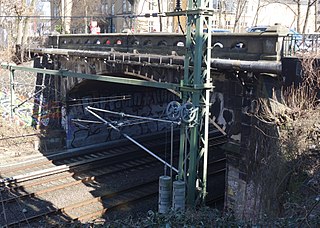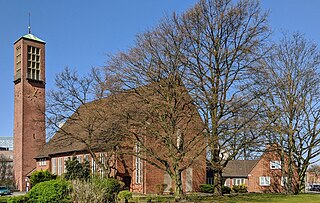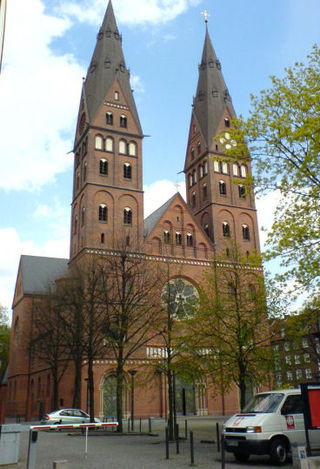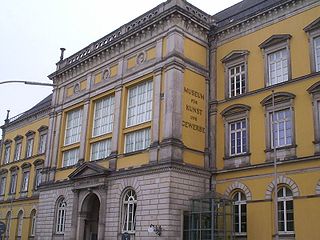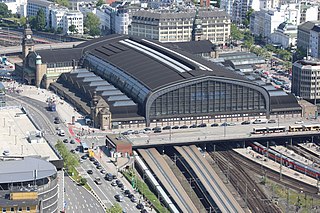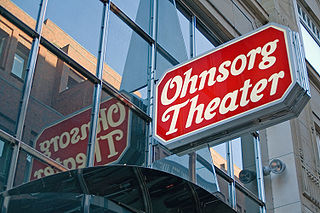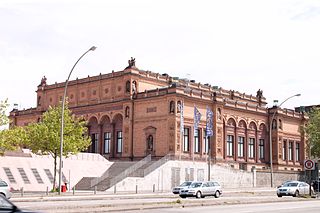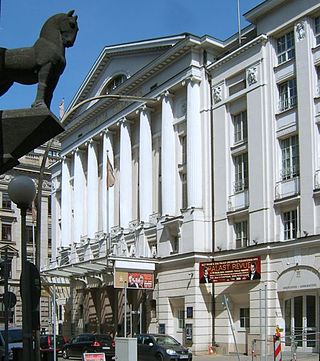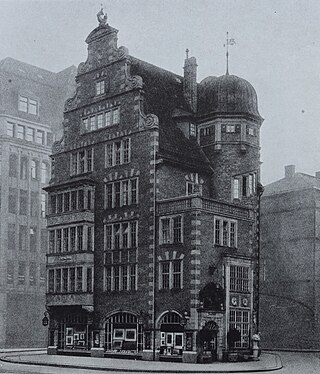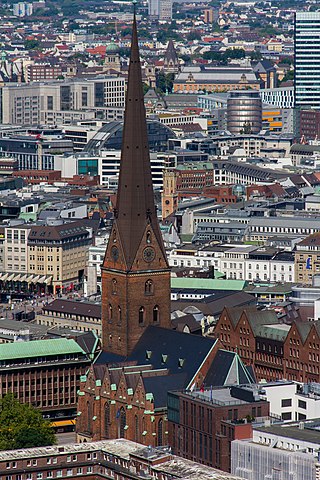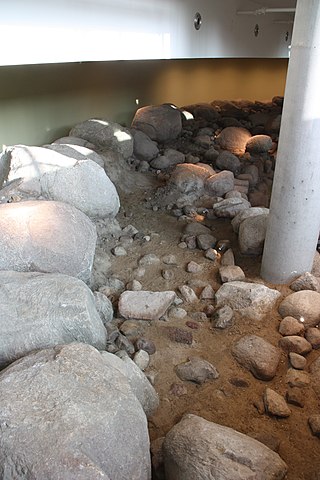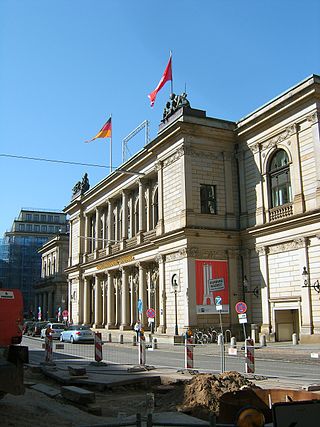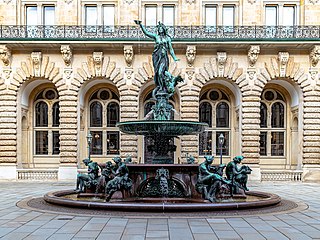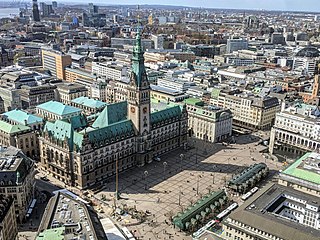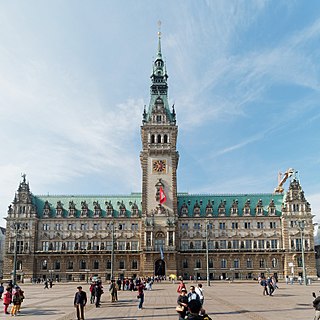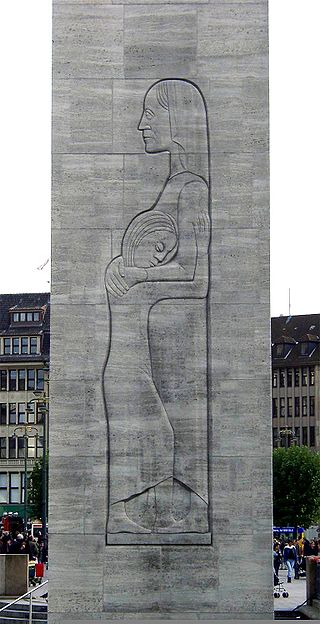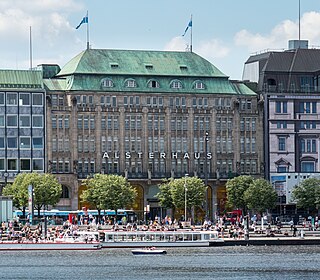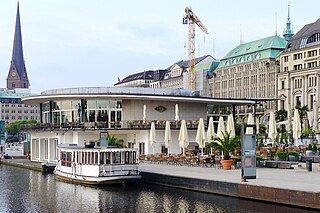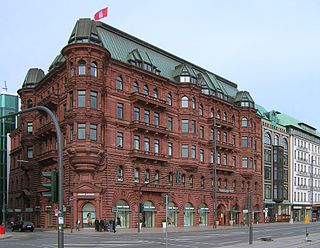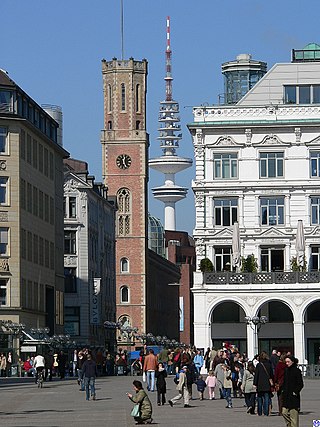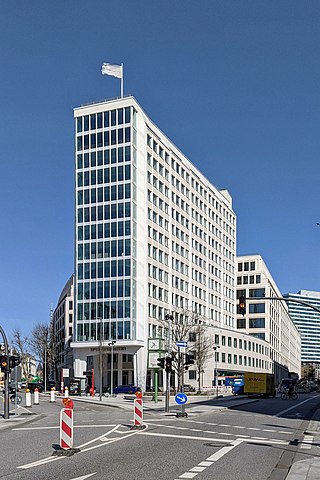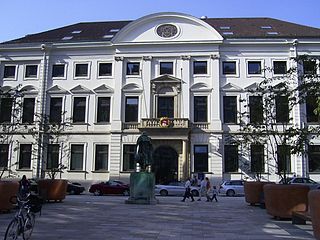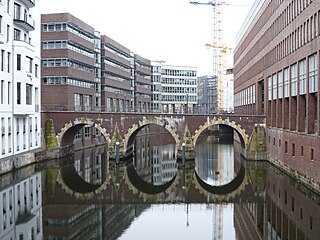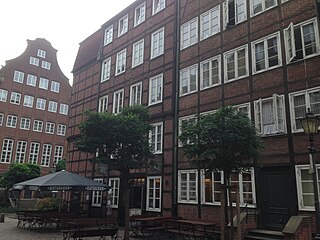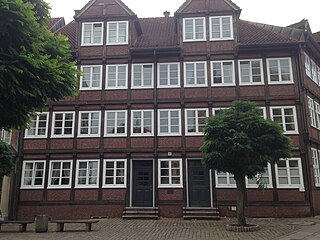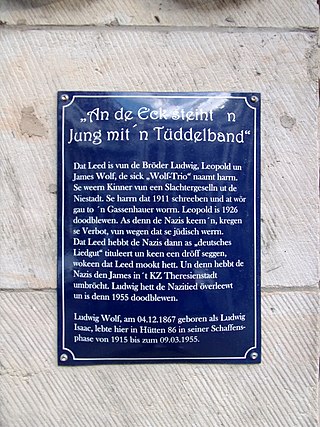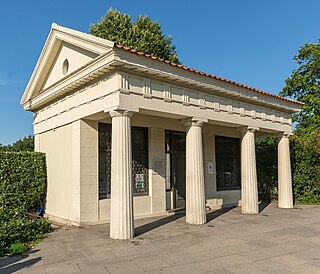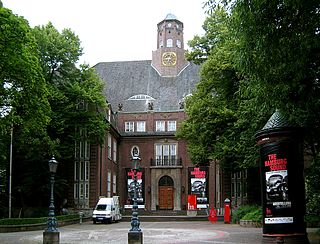Self-guided Sightseeing Tour #7 in Hamburg, Germany
Legend
Guided Free Walking Tours
Book free guided walking tours in Hamburg.
Guided Sightseeing Tours
Book guided sightseeing tours and activities in Hamburg.
Tour Facts
10.6 km
203 m
Experience Hamburg in Germany in a whole new way with our free self-guided sightseeing tour. This site not only offers you practical information and insider tips, but also a rich variety of activities and sights you shouldn't miss. Whether you love art and culture, want to explore historical sites or simply want to experience the vibrant atmosphere of a lively city - you'll find everything you need for your personal adventure here.
Activities in HamburgIndividual Sights in HamburgSight 1: Alfredstraße
The Alfredstraßenbrücke is a listed road bridge in the Hamburg district of Borgfelde. It runs over the tracks of the Hamburg–Lübeck long-distance railway line and the S-Bahn line 1 in the direction of Ohlsdorf and Poppenbüttel.
Sight 2: Erlöserkirche Borgfelde
The Church of the Redeemer in the Hamburg district of Borgfelde belongs to the Evangelical Lutheran parish of St. Georg-Borgfelde. It is the first new church building in Hamburg after the destruction of the Second World War. Today, it is mainly Christians from Ghana who celebrate their services in the Church of the Redeemer.
Sight 3: Feuer- und Rettungswache Berliner Tor
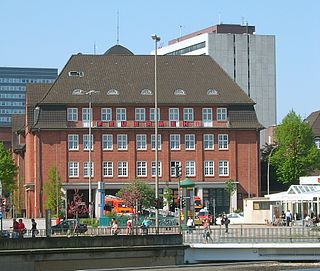
The main fire station Berliner Tor is a listed office building of the Hamburg Fire Brigade at the Berliner Tor in Hamburg-St. George.
Sight 4: Monument to the X-ray and Radium Martyrs of All Nations
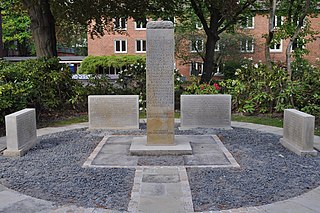
The Monument to the X-ray and Radium Martyrs of All Nations is a memorial in Hamburg, Germany, commemorating those who died due to their work with the use of radiation, particularly X-rays, in medicine. It was unveiled on the grounds of St Georg Hospital, on 4 April 1936 by the Deutsche Röntgengesellschaft.
Wikipedia: Monument to the X-ray and Radium Martyrs of All Nations (EN)
Sight 5: Domkirche Sankt Marien
Domkirche St. Marien is a Roman Catholic cathedral in Sankt Georg, Hamburg, Germany, and the metropolitan cathedral of the Roman Catholic Archdiocese of Hamburg. It was the first new Roman Catholic church built in Hamburg since the Reformation.
Sight 6: Heilige-Dreieinigkeits-Kirche
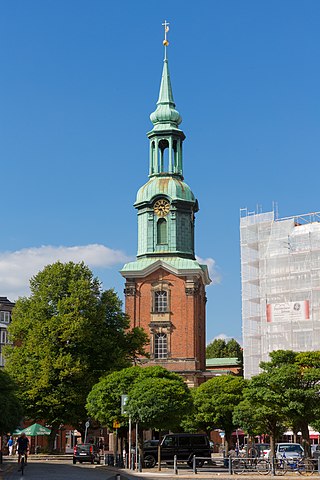
The Holy Trinity Church, often called St. George's Church, is located in Hamburg's St. Georg district not far from the Lange Reihe, very close to Hamburg's main train station and, along with the Church of the Redeemer in Borgfelde, is one of the two preaching sites of the Evangelical Lutheran parish of St. Georg-Borgfelde.
Wikipedia: Hl.-Dreieinigkeits-Kirche (Hamburg-St. Georg) (DE)
Sight 7: Deutsches Schauspielhaus
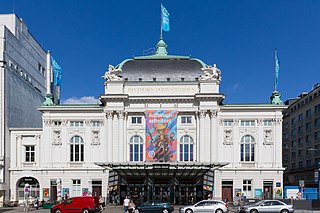
The Deutsches Schauspielhaus, sometimes referred to as the Hamburg Schauspielhaus or Hamburg Theatre, is a theatre in the St. Georg quarter of the city of Hamburg, Germany
Sight 8: Museum für Kunst und Gewerbe Hamburg
The Museum für Kunst und Gewerbe Hamburg is a museum of fine, applied and decorative arts in Hamburg, Germany. It is located centrally, near the Hauptbahnhof.
Wikipedia: Museum für Kunst und Gewerbe Hamburg (EN), Website
Sight 9: Hamburg Hauptbahnhof
Hamburg Hauptbahnhof, or Hamburg Central Railway Station in English, is the main railway station of the city of Hamburg, Germany. Opened in 1906 to replace four separate terminal stations, today Hamburg Hauptbahnhof is operated by DB Station&Service AG. With an average of 550,000 passengers a day, it is Germany's busiest railway station and the second-busiest in Europe after the Gare du Nord in Paris. It is classed by Deutsche Bahn as a category 1 railway station.
Sight 10: Ohnsorg Theater
The Ohnsorg-Theater in Hamburg, Germany, is a stage for plays run after the British system of repertory theatre with up to six produced plays per season. Plays are exclusively performed in low German (Platt). They play a major role in spreading the knowledge and, in recent times, renewed appreciation of this minority language. Exceptions played in standard German (Hochdeutsch) are only made for television broadcasts. These broadcasts, by the regional Norddeutscher Rundfunk (NDR) and the nationwide ARD have made the theatre and its former main star Heidi Kabel popular across Germany and beyond.
Sight 11: Hamburger Kunsthalle
The Hamburger Kunsthalle is the art museum of the Free and Hanseatic City of Hamburg, Germany. It is one of the largest art museums in the country. It consists of three connected buildings, dating from 1869, 1921 (Kuppelsaal) and 1997, located in the Altstadt district between the Hauptbahnhof and the two Alster lakes.
Sight 12: Thalia Theater
The Thalia Theater is one of the three state-owned theatres in Hamburg, Germany. It was founded in 1843 by Charles Maurice Schwartzenberger and named after the muse Thalia. Today, it is home to one of Germany's most famous ensembles and stages around 9 new plays per season. Current theatre manager is Joachim Lux, who in 2009/10 succeeded Ulrich Khuon.
Sight 13: Hulbe-Haus
Das Hulbe-Haus ist ein Büro- und Geschäftshaus in Hamburg, Mönckebergstraße 21, das unter Denkmalschutz steht. Es wurde 1910/11 nach Entwürfen des Hamburger Architekten Henry Grell (1870–1937) erbaut und ist nach seinem Bauherrn benannt, dem Buchbinder und Leder-Kunsthandwerker Georg Hulbe.
Sight 14: Dietrich-Bonhoeffer-Denkmal
St. Peter's Church is the oldest parish church in Hamburg. It is named after the Apostle Peter and is one of the five main churches in Hamburg.
Sight 15: Bischofsturm
The Bishop's Tower, or Bishop's Castle, is an archaeological site in the historic city center of Hamburg, Germany, containing the oldest known remains of a stone building in the city. The site includes the foundations of a circular tower and a well, originally believed to represent the 11th-century stone residence of Archbishop Adalbrand of Bremen. Later finds, however, disproved this theory and it is now considered to be part of a 12th-century defensive structure.
Sight 16: Hamburger Börse
The Hamburg Stock Exchange is the oldest stock exchange in Germany. It was founded in 1558 in the Free and Hanseatic city of Hamburg. Four different individual exchanges now exist under its umbrella: the Insurance Exchange, Grain Exchange, Coffee Exchange, along with the General Exchange.
Sight 17: Hygieia-Brunnen
The Hygieia fountain is located in the courtyard of the Hamburg City Hall. It was built in 1896, designed by the sculptor Joseph von Kramer (1841–1908) from Munich, a brother of the architect Theodor von Kramer. The fountain was built to commemorate the cholera epidemic of 1892, in which over 8000 Hamburg residents died. It is designated as a cultural monument with the object ID 12066.
Sight 18: Heinrich-Heine-Denkmal
The Rathausmarkt in front of the Hamburg City Hall is a central square in Hamburg's city centre. Despite its name, the square never served as a regular marketplace ; however, it is still an important transport hub, a popular meeting place for tourists and a regular meeting place for political, sporting and cultural events.
Sight 19: Rathaus
Get Ticket*Hamburg City Hall is the seat of local government of Hamburg, Germany. It is the seat of the government of Hamburg and as such, the seat of one of Germany's 16 state parliaments. The Rathaus is located in the Altstadt quarter in the city center, at the Rathausmarkt square, and near the lake Binnenalster and the central station. Constructed from 1886 to 1897, the city hall still houses its original governmental functions with the office of the First Mayor of Hamburg and the meeting rooms for the Parliament and the Senate.
Sight 20: Denkmal für die Gefallenen beider Weltkriege
The Hamburg Memorial, officially the Memorial to the Fallen of both World Wars, is a 21-metre-high stele made of shell limestone with the inscription "Forty thousand sons of the city gave their lives for you — 1914–1918" and the opposite relief Mourning Mother and Child.
Sight 21: Alsterhaus
The Alsterhaus is a five-story department store at Jungfernstieg 16–20 in Hamburg that opened in 1912.
Sight 22: Café Alex
The Alsterpavillon is a striking building in Hamburg, in which there was a traditional café before the current restaurant business. The Alster Pavilion is located on Jungfernstieg on the Inner Alster.
Sight 23: Hamburger Hof
Hamburger Hof is the name of a building on Jungfernstieg in Hamburg and a shopping arcade located in it.
Sight 24: Alte Post
The Alte Post in Hamburg is a building completed in 1847 on Poststraße in Hamburg's Neustadt district. It was built after the Great Fire of 1842 according to plans by Alexis de Chateauneuf out of the need to combine several of the post offices represented in the city in one house. The largest administrative building in the city at the time is considered an outstanding example of Hamburg's so-called post-fire architecture and is one of the oldest post office buildings in Germany before the founding of the unified Reichspost.
Sight 25: Springer-Haus
The Springer high-rise in Hamburg served as the headquarters of the Axel Springer publishing house from 1956 to 1967.
Sight 26: Görtz-Palais
The Görtz-Palais is an originally baroque building at Neuer Wall No. 86 in Hamburg's Neustadt district.
Sight 27: Ellerntorsbrücke
The Ellerntor Bridge is a bridge in Hamburg, Germany. The name comes from the historic Ellerntor, which formed the western entrance to the city at this point until the 17th century.
Sight 28: Telemann-Museum
The Telemann Museum is a museum in the Composers Quarter in Hamburg-Neustadt, Germany. It was founded in 2011 and is dedicated to the classical composer Georg Philipp Telemann.
Sight 29: Brahms-Museum
The Brahms Museum is a museum in the Composers Quarter in Hamburg-Neustadt, Germany. It is dedicated to the classical composer Johannes Brahms.
Sight 30: Jung mit'n Tüddelband
An de Eck steiht'n Jung mit'n Tüdelband, also known under the titles An de Eck steiht'n Jung mit'n Trudelband and En echt Hamborger Jung is a Low German couplet, the history of which began in 1911 with the Wolf brothers.
Sight 31: Millerntorwache
The Millerntor was the western of the former Hamburg city gates. It was moved several times in the course of several city expansions and was most recently located at today's Millerntorplatz on the border between the Neustadt and the suburb of St. Pauli. It pointed to the former neighboring town of Altona/Elbe and was therefore also called the Altonaer Tor. From this last Millerntor the Reeperbahn led to the Altona Nobistor.
Sight 32: Hamburg Museum
The Museum for Hamburg History is a history museum located in the city of Hamburg in northern Germany. The museum was established in 1908 and opened at its current location in 1922, although its parent organization was founded in 1839. The museum is located near the Planten un Blomen park in the center of Hamburg. The museum is commonly reviewed among the museums of the city of Hamburg.
Share
How likely are you to recommend us?
Disclaimer Please be aware of your surroundings and do not enter private property. We are not liable for any damages that occur during the tours.
GPX-Download For navigation apps and GPS devices you can download the tour as a GPX file.
